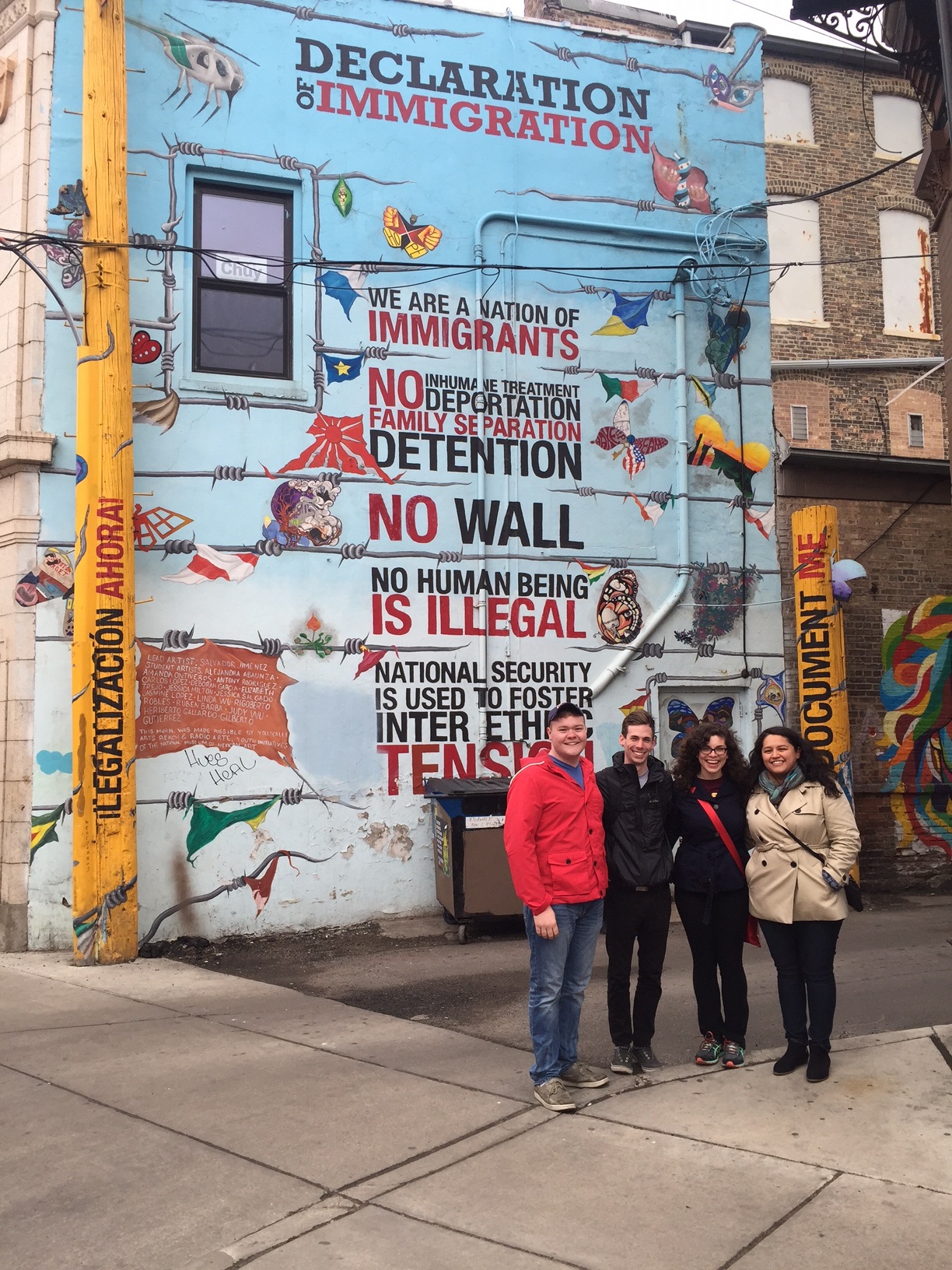A group post written at the culmination of the semester by a combination of 4th and 1st year students; Jared Brocklehurst (’15), Samantha Juarez (’15), Addison Mauck (’18), and Adam Roberts (’18)
In pursuit of social justice, what does it mean to be for and with others? This question tied together our UNIV 102 course, Encountering Chicago with Professor Kathleen Dunn. The course centered on the fraught politics of two essential human needs: food and space. We discussed in-depth the issue of food justice, in its production and consumption. Everyone has the right to safe, nutritious, affordable meals. Though food is essential to every life, this commodity is often restricted to those who can afford it; at the same time, those who produce and prepare our food work under precarious conditions for low wages within a racially segregated industry that offers little hope of upward mobility. These issues are often obscured by the umbrellas of public health and nutrition, as they focus on the individual, not systemic scarcity. Detroit serves as a great case study for the issue of food justice and the problem of food deserts: areas where the access to food from supermarkets is minimal due to the persistent effects of racism and concentrated poverty. Residents of Detroit are taking their food seriously by growing it for the community in their own backyards and empty lots, proving that their neighborhoods (and they themselves) are not lost causes and cannot be starved out. Our final field trip will be to Growing Power, a working farm that provides employment and food in the South Side of Chicago.
In the early spring of 2015, Chicago had its first mayoral runoff election – an event most observers attributed to a population divided about what kind of city Chicago is, and what kind of city it should be. Attending campaign events such as debate viewing parties and candidates’ speaking engagements, we experienced the different climates of both campaigns: from the rigid and monied structure of the Rahm Emanuel campaign to the strong grassroots efforts of the Jesús “Chuy” Garcia campaign. It became apparent to us that this race was about much more than simply electing the Mayor of Chicago; rather, the race reflected the starkly different worlds that comprise Chicago. In our exploration of the city, we left our surrounding Edgewater and Rogers Park communities and visited various other neighborhoods in which we gained a different and brief perspective of the lives of our fellow Chicagoans. We toured Pilsen, a Mexican immigrant community under the threat of a disappearing culture due to increasing gentrification and the influx of young white people. It is also in Pilsen that we witnessed environmental injustice due to the concentration of toxic industry and overwhelming lack of green space.
As graduating seniors and first years alike, we are at different stages of our journey at Loyola, but we share a curiosity for and commitment to leading lives for and with others. With Loyola’s Ignatian foundation in mind, our attempts to become socially aware minded individuals have included taking advantage of Loyola’s resources that have educated us intensely on the importance of a multitude of social justice issues. We are Chicago’s Jesuit University, and with this title comes much responsibility to the rich diversity found in the city. Through the runoff election we saw the disconnections between different parts of the city’s identity come to life. From Boystown to Pilsen, each neighborhood comes with its own set of challenges and contributions, some of which are not always acknowledged by the broader Chicago community. As students in Chicago, we need to be critical of our role in creating this disconnect and recognize our responsibility to work towards lessening the disparities from which many members of our Loyola community are sheltered.
Tags: immigration
